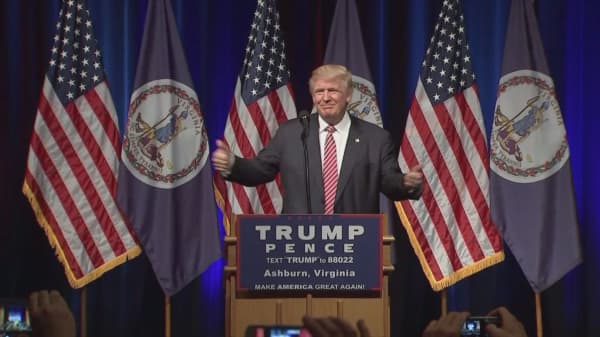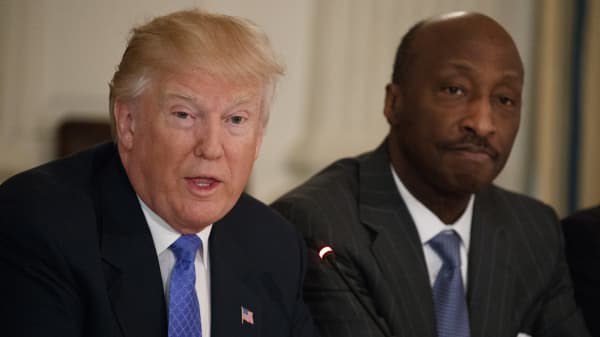Some might try to delude themselves that the melee in Charlottesville was about something other than race, but in the instantly iconic photo of the maniac's Dodge Challenger plowing through the crowd, an African American man rolling off the trunk after being hit, makes the spectacle of bigotry overwhelm any parsing of the rally's motives and beliefs.
Trump's initial response that "many sides" were to blame inflamed liberals and conservatives alike because it violated two deeply held principles. The first is an expectation that the president is, first and foremost, a healer-in-chief during times of crisis. With his "many sides" comment (later updated to something more nuanced), Trump told America and the world that there was another side to black and white limbs tumbling through the air after being smashed by a Nazi sympathizer. Core values aside, the master of instantaneous communication should know better.
The second violation was the assumption that a significant number of Republicans and conservatives are closet racists and would appreciate his wink to his base. Many people who voted for Trump did so because of concerns about the direction of the country that were collateral to race. And they are nauseated by Charlottesville. Those who dream about a united country would be well served by dispensing with the notion that everyone who voted for Trump sports a Waffen-SS haircut.
The Trump White House – but perhaps not Trump himself — is beginning to see that the same gratuitous provocations that landed him in the Oval Office may not keep him there for eight years. As his approval ratings show, Trump still has his base, but that's all he has in the same spirit that carnival antics are all he knows. But many Republicans and industry leaders, who live in mortal terror of racial controversies, are searching for safer ground. The question is where will they find it?
Commentary by Eric Dezenhall, CEO of Dezenhall Resources, a crisis-management firm in Washington, DC. He was an aide in the Reagan White House Communications Office and is also the author of "Glass Jaw: A Manifesto for Defending Fragile Reputations in an Age of Instant Scandal." Follow him on Twitter @EricDezenhall.
For more insight from CNBC contributors, follow
@CNBCopinion
on Twitter.




